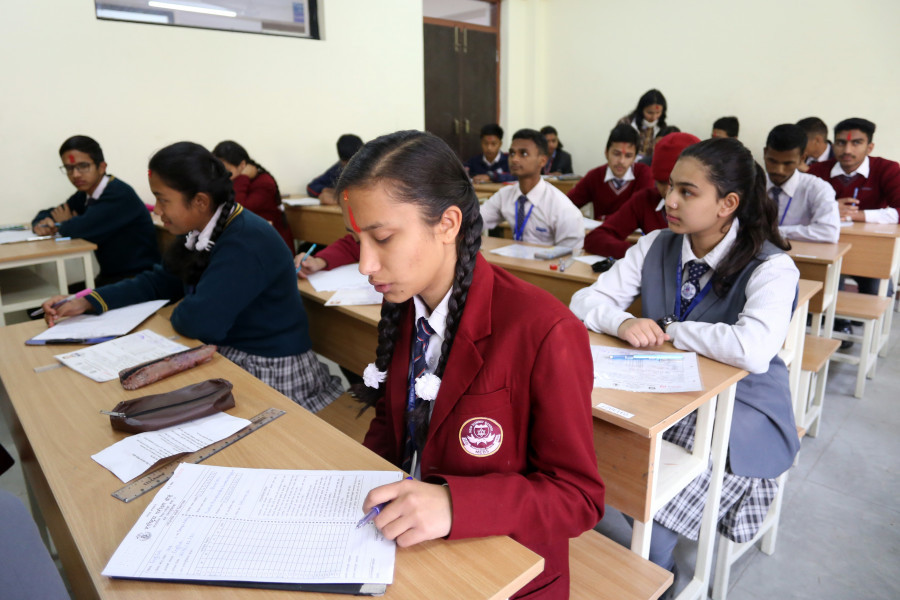National
Education Ministry mulls allowing local governments to resume schools in places with low risk of Covid-19
Public health experts say it's not safe to hold any activity that brings people together.
Binod Ghimire
While health experts have cautioned that the country is still under the threat of Covid-19, the Ministry of Education has prepared a plan to allow local governments and respective schools to resume academic activities.
The provision will come into effect after approval from the federal government, which could possibly take a decision from the next Cabinet meeting. According to the proposal, schools will resume classes at the local level where there is a low threat of the pandemic.
There are 753 local federal units across the country, having 36,000 schools—29,000 of them government-funded. Health Ministry records show that four districts do not have active Covid-19 cases at present.
“Where there is no possibility of running classes at schools, teachers will have to reach out to students,” according to the ministry’s plan.
Teachers from a majority of public schools are staying home, without being currently involved in instruction. According to an official at the ministry, the proposal was introduced to bring the teachers back to their duty. There are over 200,000 teachers serving at public schools.
Starting on Thursday, the day the new fiscal year begins, teachers will have to attend their schools. Even if there is no possibility of running the classes, they will have to run the administration and reach out to students. Private schools have already asked guardians to immediately enroll their children.
The teachers will have to start classes at the community level forming small groups, in case running the school is impossible. Educationists say it would be risky to start schools in full swing at this point.
“However, engaging students in teaching-learning activities forming small groups could be a better option,” Binay Kusiyait, a professor at Tribhuvan University who has researched on school education, told the Post. Mobilising teachers door to door would be even better and less risky.
Some of the local governments have already started engaging students in learning through alternative modes. Tansen Municipality, for instance, has mobilised teachers to visit students at their doorsteps once a week. The teachers support students in learning while also providing tips for the parents to guide their children.
Bhume Rural Municipality in Rukum (East) has started classes in groups starting with grades 9 and 10. Mohan Budha Magar, a teacher from Janajagriti Secondary School, said initiating group instruction was necessary to resume teaching-learning activities. He said group learning is more effective than virtual instruction through online or broadcast media.
“We are focused on ninth and tenth graders at the moment. It will gradually cover the lower grades,” he told the Post. The academic year normally begins in mid-April. However, the lockdown imposed to contain the pandemic has made formal resumption of classes uncertain this session. There are more than seven million children going to school.
The ministry’s guidelines on virtual classes unveiled last month say instruction through online and broadcast mediums is only for engaging students in learning activities but that does not qualify as formal education.
Countering the ministry’s idea, public health experts say it is still not safe to reopen schools. Reports that the coronavirus cases have gone down in the last few days do not necessarily mean the threat has minimised. Dr GD Thakur, former director general of the department of health, said negligence might inflict great harm.
“I would say running classes at the school level is not a well thought out plan,” he told the Post. “No activities that bring people together should be allowed at this point.”




 14.24°C Kathmandu
14.24°C Kathmandu















